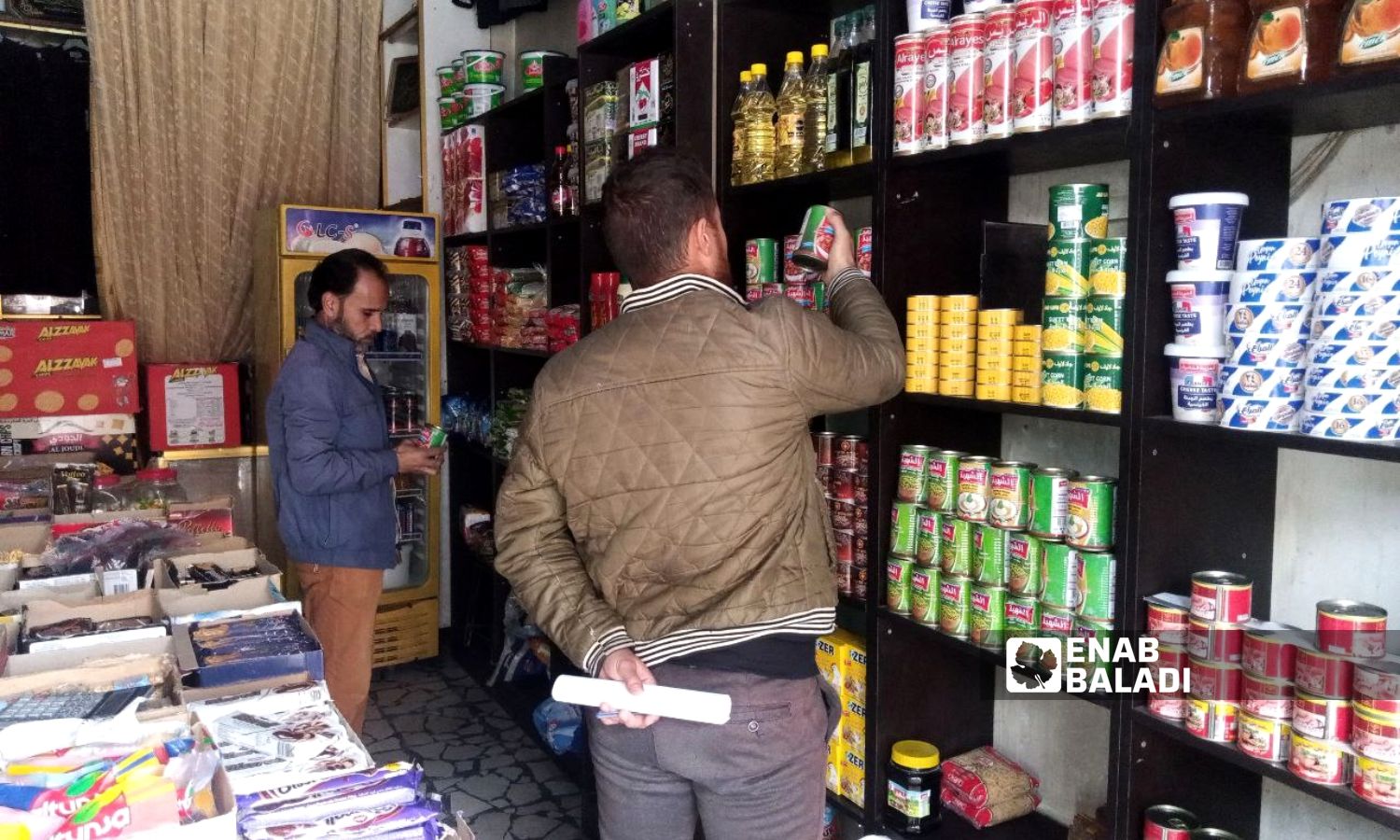



Enab Baladi – Ras al-Ain
Recently, several people in the city of Ras al-Ain, northwestern al-Hasakah, suffered cases of food poisoning after consuming expired food products and sweets they purchased from local stores.
Residents have complained about the recurrence of these incidents, calling on responsible authorities to put an end to what they considered a “serious phenomenon” that threatens their safety and the health of their children.
It has become routine for locals to check the validity of products before purchasing them due to the recorded cases of poisoning.
During a shopping tour of a store in the area, Muhammad Mohieddin (42 years old) from Ras al-Ain noticed a low price for cheese boxes. He told Enab Baladi that he bought a full box. However, upon returning home and opening them, he was surprised by their bad smell and dark yellow color.
Upon checking the lid, Mohieddin discovered that the cheese had expired more than a month and a half ago, prompting him to dispose of it.
Similarly, Sarah al-Khaled (32 years old) was shocked by the bad smell and dark color of canned luncheon meat she had bought from a store in Ras al-Ain. She realized that the cans were rotten and expired.
She indicated that she felt scared and angry and decided to go to the store to confront the owner. When she arrived, the shop owner tried to convince her that it was a mistake by the workers, but she filed a complaint against him with the Directorate of Supply, who fined him and confiscated the spoiled products from his store.
Adnan al-Hassan mentioned that he bought a family-size carbonated soft drink from one of the stores, but after opening it, he detected a strange taste, which led him to check its validity. He found that it had expired about five months ago.
He immediately informed the seller, who denied knowledge of the expiry date and insisted that he was not responsible for it.
Al-Hassan called on the relevant authorities to crack down on store owners and to punish and even close shops that sell expired products due to their health hazards. He pointed out that this was not the first time he had bought expired, particularly canned, products.
Some merchants resort to illegal methods to market food products to achieve higher profits. Instead of disposing of products nearing their expiration date, they mix them with new products in the same packages or slightly lower their price.
Fadi al-Hamza, a food product merchant in Ras al-Ain, stated that some wholesalers sell most products that are close to or have already expired through offers to grocery and small store owners.
He added to Enab Baladi that, for example, a box of “Indomie” noodles sells for 3,000 Syrian pounds, and when it approaches the expiration date, the price is reduced to 1,500 Syrian pounds.
He mentioned that some merchants seeking higher profits do not resort to offers but instead mix valid and expired packages in one box before selling them to the retailer.
He explained that he has been working in his store for over 10 years and does not want to lose his loyal customers, so he avoids selling expired or rotten products.
Deputy Director of Supply and Consumer Protection in the local council of Ras al-Ain, Mohammad al-Qadi, told Enab Baladi that some store owners violate health regulations and sell expired and spoiled products.
He stated that the Directorate conducts daily market inspections to check products and confiscates all expired goods, as well as issues violations and penalties against those selling expired or spoiled items.
He emphasized the necessity for residents to cooperate with the Directorate if they suspect any expired products, to apprehend the violators and prevent them from selling any questionable or spoiled products, with the necessary legal measures taken against them.
Most of the residents of Ras al-Ain depend on the agricultural sector as a source of income, and workers’ wages do not exceed two US dollars per day (equivalent to 30,000 Syrian pounds).
The Syrian pound is the common currency in the area, but its unstable situation and unprecedented decline have burdened the residents. The second currency is the Turkish lira (not widely circulated) due to the city’s proximity to the Turkish border, and the third is the US dollar.
if you think the article contain wrong information or you have additional details Send Correction